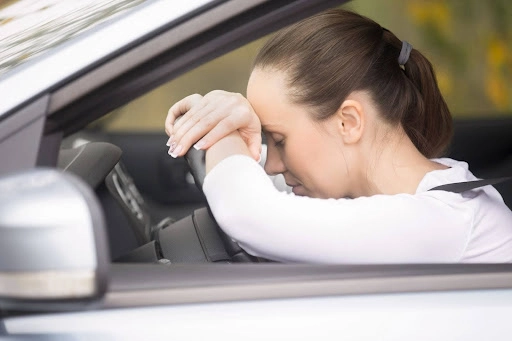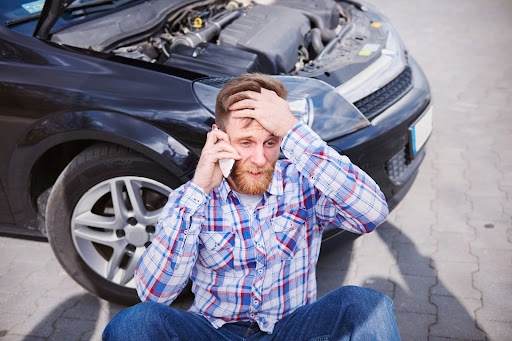At Boesen Law, we understand that a golf cart crash is never “just a minor accident.” Whether it’s a negligent driver, unsafe property, or a manufacturing flaw, our Denver personal injury attorneys bring decades of experience fighting for victims who suddenly face medical bills, missed work, and uncertainty about the future. We build strong legal cases from day one because the insurance companies rarely treat these injuries seriously without proof.
Golf Cart Accidents Have Serious Consequences: We’ll Fight for Your Compensation
The number of golf carts buzzing around Denver’s residential streets, parks, and private resorts has surged in recent years. Unfortunately, Colorado law hasn’t fully caught up. Golf carts typically aren’t required to have seatbelts, crash cages, or other protective features found in passenger vehicles. This means a golf cart crash, even at 15 mph can throw passengers onto pavement or into fixed objects, causing injuries as severe as any highway collision.
Reach out to our law firm for a no-cost, no-obligation consultation today. Call our personal injury lawyers in the state of Colorado at (303) 999-9999 or contact us online.
At Boesen Law, we’ve seen how golf cart crashes leave victims grappling with:
- Spinal fractures requiring surgery and months of rehab
- Concussions that disrupt daily life and work
- Serious orthopedic injuries like fractured hips or wrists
- Lingering nerve damage and chronic pain
Unlike typical car crashes, golf cart accidents often involve unique legal complexities. For example, if your crash happened on private property, you may be dealing with corporate insurance adjusters from resorts or homeowners’ associations not simply auto insurers. Our team navigates these specialized legal landscapes, ensuring no one tries to downplay your claim because the vehicle “was only a golf cart.”
What Causes Most Golf Cart Accidents?
Golf carts may appear harmless, but according to Consumer Products Safety Commission (CPSC), thousands of golf cart injuries occur each year in the U.S., many involving traumatic brain injuries, spinal cord damage, or multiple fractures. Through our investigations, we frequently see these recurring patterns:
Golf Course Negligence
Golf courses, country clubs, and resorts have a legal duty to maintain their grounds and equipment in a safe condition.
Examples of negligence include:
- Cracked, uneven, or excessively steep cart paths that flip carts at low speeds
- Missing or faded directional signage that leads drivers into hazards
- Overloading golf carts beyond safe passenger limits
- Skipping routine maintenance checks that would catch failing brakes or steering systems
The golf cart accident attorneys at Boesen Law have handled cases where resorts knew of a hazardous path but failed to fix it, leading to severe injuries. We pursue not only damages for medical care but also compensation for pain, suffering, and long-term life changes.
Reckless or Unlicensed Operators
Accidents in these cases often stem from:
- Underage or unlicensed drivers lacking basic driving skills
- Guests driving under the influence of alcohol during tournaments or resort events
- Passengers distracted by mobile phones or conversations
- Sharp turns or excessive speed, particularly downhill
We dig into every detail, securing witness statements, event schedules, and property rules to prove liability when reckless driving is the cause. Your lawyer will know how to hold individuals and property owners responsible when they knowingly allow unsafe operation of golf carts.
Defective Equipment or Maintenance Failures
Failing brakes, stuck throttles, and steering failures are all documented causes of golf cart crashes.
When a crash involves mechanical failure, Boesen Law:
- Investigates maintenance records from golf clubs or resorts
- Examines whether manufacturers issued recalls or safety bulletins
- Partners with mechanical experts to inspect the cart for design flaws
- Pursues claims under product liability law against manufacturers or suppliers
These claims can unlock additional insurance coverage or settlements that might otherwise be unavailable in standard personal injury cases.
Collisions with Vehicles or Pedestrians
Because golf carts offer zero external protection, even low-speed collisions can lead to life-threatening injuries. We approach these cases similarly to pedestrian accident claims, thoroughly investigating scene evidence, driver statements, and witness testimony to establish liability.
Attorney Jon Boesen emphasizes:
“In golf cart injury cases, insurers often downplay these incidents as ‘minor’ simply because the carts go slower than cars. But I’ve seen clients left with brain injuries, spinal surgeries, and permanent mobility challenges. The key is proving negligence—like poor maintenance, faulty paths, or inadequate supervision—so victims can recover every dollar they deserve.”
How Colorado Law Handles Golf Cart Accident Claims
Statute of Limitations: Under C.R.S. § 13-80-102, most personal injury claims—including those involving golf carts—must be filed within two years of the date of injury. But things get more complicated if your accident occurred on public property, such as a city-owned golf course, a park, or a street where the city allows golf cart use. In those situations, Colorado’s Governmental Immunity Act requires that a written notice of claim be filed within just 182 days of the accident. Miss this deadline, and you could lose your right to recover damages entirely.
There’s also a grey area in how golf carts are classified under Colorado law. In some contexts, they’re treated as vehicles—especially if driven on public roads—while in others, they’re considered recreational equipment. This affects how insurance applies, which statutes control liability, and whether certain safety regulations kick in. For instance, Colorado has no uniform state law requiring seatbelts on golf carts, leaving many injury victims vulnerable to insurers arguing the cart “wasn’t a real vehicle” and thus doesn’t justify significant compensation.
This is why early consultation with a golf accident lawyer at Boesen Law is crucial to evaluate your options.
Contact a Trusted Denver Golf Cart Accident Lawyer Today
If you or someone you love was injured in a golf cart crash—on a course, at a resort, or in a residential area—you may be entitled to significant compensation. These cases require prompt legal action, thorough investigation, and a team that understands how to challenge assumptions about “low-speed” accidents.
At Boesen Law, we’ve secured settlements of up to $4 million for injured clients in Colorado, as shown in our case results. Our attorneys know how to uncover hidden liability, prove the full extent of your injuries, and hold negligent parties accountable.
We invite you to schedule a free consultation with our Denver legal team. You pay nothing unless we win your case. Let’s talk about your rights and what your case may truly be worth.
Frequently Asked Questions About Golf Cart Accidents in Denver
Are golf carts allowed on public roads in Denver?
Golf carts are not street-legal in most areas of Denver unless designated by the city. According to the Colorado Revised Statutes § 42-4-111, local governments may authorize golf cart use on specific roads under strict safety rules. If your crash occurred on a city street, we’ll investigate whether the road was legally approved for cart traffic and whether proper signage and safety measures were in place.
What if the accident happened at a Denver-area golf course?
If your injury occurred on a golf course or at a country club in the Denver area—such as City Park Golf Course, Wellshire, or Kennedy—Boesen Law can determine whether the property owner or management company failed in their duty of care. We review maintenance logs, cart usage policies, and terrain hazards to hold the appropriate parties accountable.
How long do I have to file a golf cart accident claim in Denver?
Most golf cart injury claims must be filed within 2 years, per C.R.S. § 13-80-102. However, if your crash occurred on city-owned property (like a municipal golf course), Colorado’s Governmental Immunity Act requires that you file a notice of claim within 182 days. Our attorneys can help you meet both deadlines.
Can I still sue if I signed a waiver at a golf course or resort?
Yes. Waivers may not protect a facility from liability if the injury was caused by gross negligence, poorly maintained equipment, or unsafe conditions. We’ll analyze the waiver language and compare it against Colorado case law to determine if your claim can proceed.
Reach out to our law firm for a no-cost, no-obligation consultation today. Call our personal injury lawyers in the state of Colorado at (303) 999-9999 or contact us online.
Content Reviewed By



